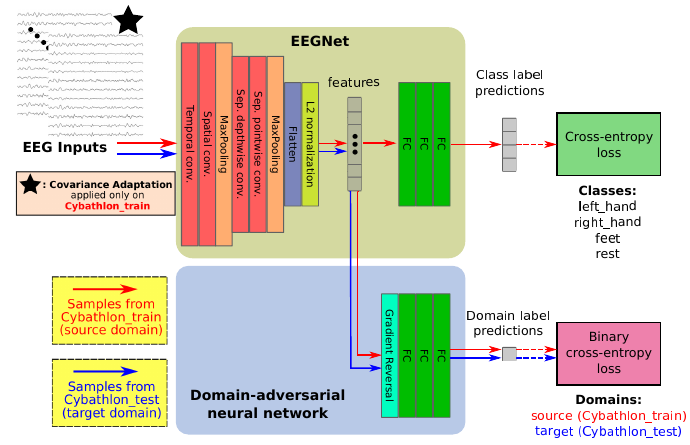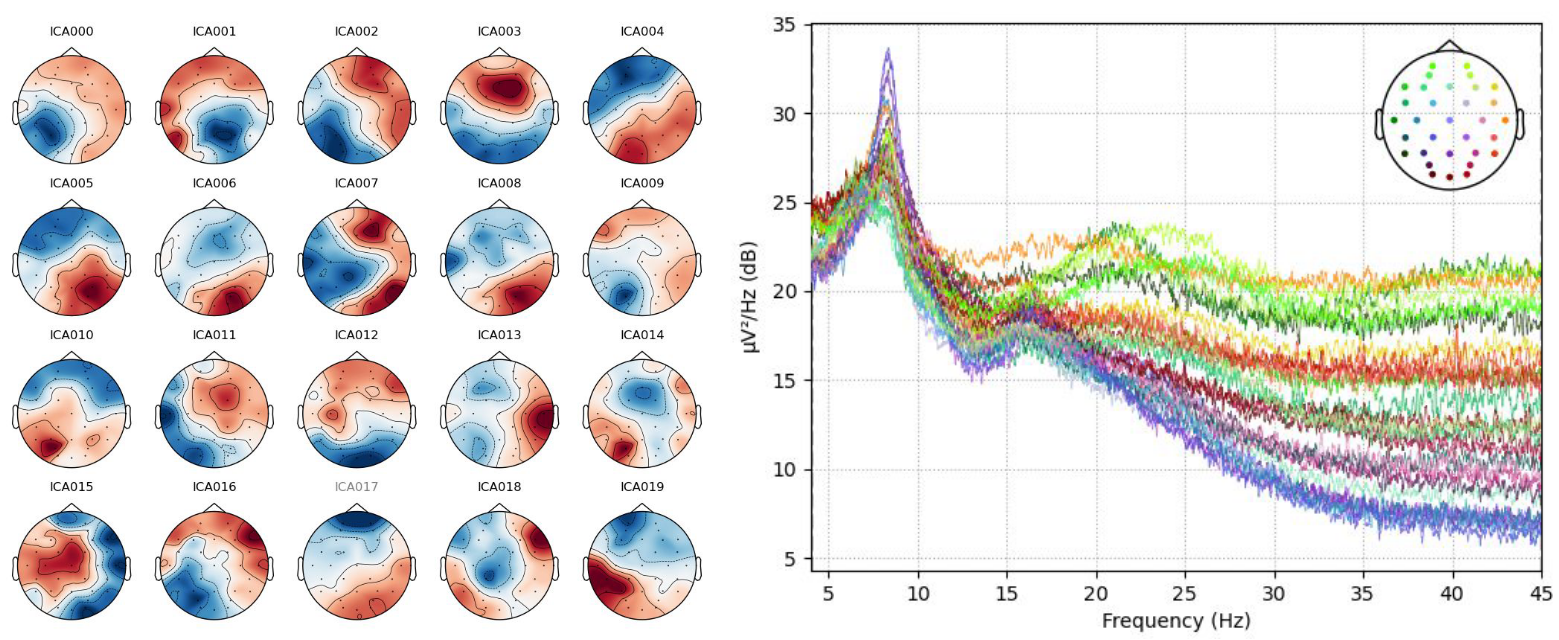Georgios Zoumpourlis

I am currently working as a Senior Machine Learning Engineer at ORB Innovations.
Prior to that, I worked as a Machine Learning Engineer at Cogitat, a deep tech startup based in London.
I obtained my PhD degree in EEG Signal Processing and Deep Learning at the EECS Department of Queen Mary University of London (UK),
under the supervision of Prof. Ioannis Patras. My research focused on building EEG-based machine learning models that can robustly decode
commands for brain-computer interfaces, generalizing across different humans and devices.
Before my PhD degree, I was working as a Research Assistant at the Visual Computing Lab of CERTH (Greece), participating in various EU projects.
My research on computer vision and machine learning had various applications, including ultra-low-power vision algorithms,
fake image detection, facial expression recognition and DNA information extraction.
I obtained my Integrated Masters degree from the ECE Department of Aristotle University of Thessaloniki (Greece), where I did my dissertation,
entitled "Upper-body pose recognition combining motion information and body parts detection", under the direction of Prof. Anastasios Delopoulos.
My academic e-mail is g.zoumpourlis [ at ] qmul.ac.uk
Publications
-
Addressing Ethical Challenges and Safety Risks in GenAI-Powered Brain-Computer Interfaces NeurIPS 2024 Workshop on GenAI for Health: Potential, Trust and Policy Compliance
Paper
The use of Generative AI (GenAI) in developing large brainwave foundation models for Brain-Computer Interfaces (BCIs) offers enormous potential but also comes with several key safety and ethical concerns. This work identifies these challenges and highlights cases of potential misuse of GenAI in BCIs, including synthetic neural activity, behaviour profiling, privacy and equality risks. Finally, it emphasizes the importance of essential safeguarding techniques to mitigate these risks, such as innovative technological solutions and proper regulatory and ethical frameworks.
-
A causal perspective on brainwave modeling for brain–computer interfaces Journal of Neural Engineering, 2024
Paper
This work explores how integrating causal reasoning with brainwave modeling can address key challenges in applying machine learning to brain–computer interfaces (BCIs), especially outside controlled lab environments.
-
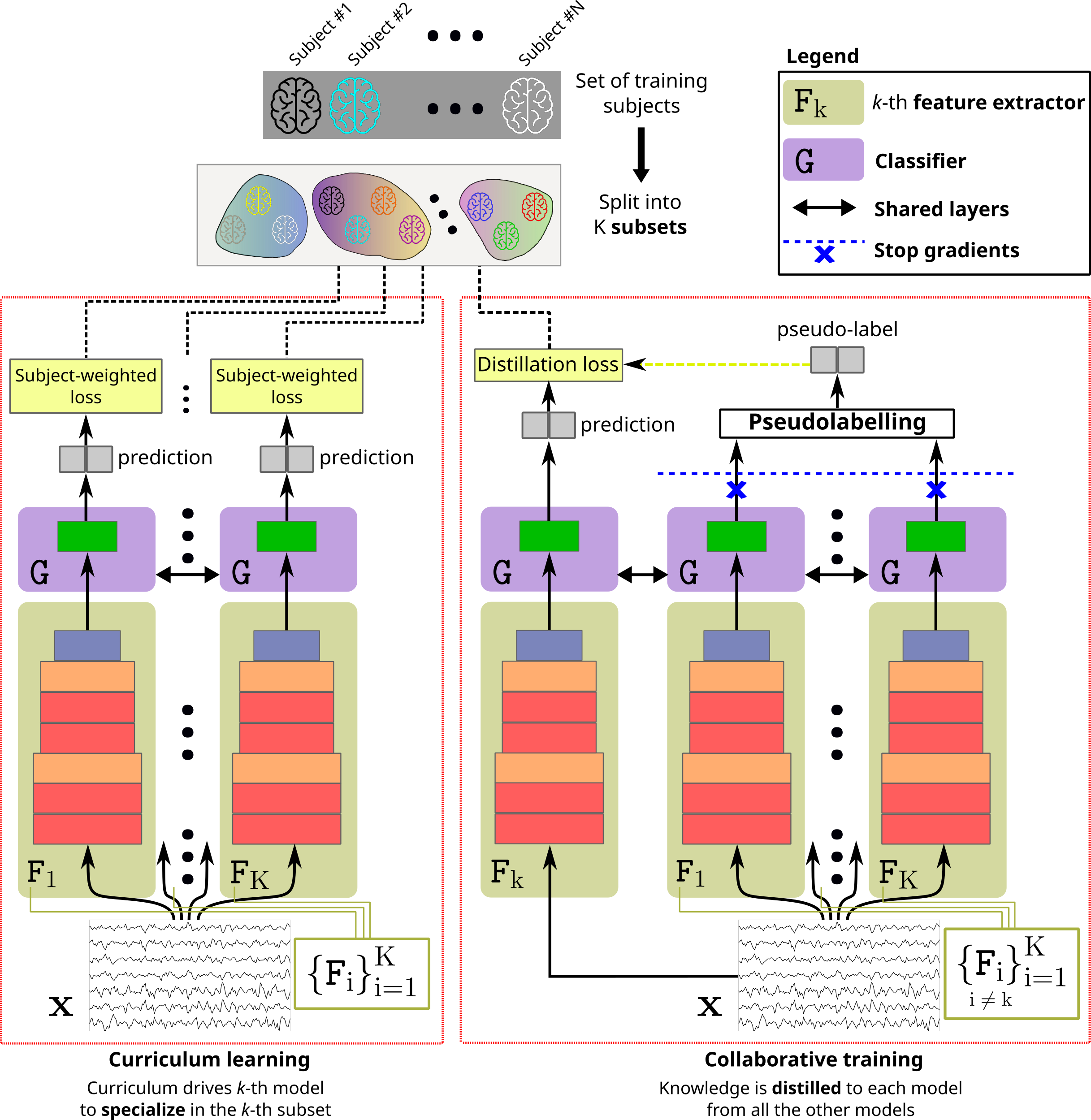 Motor Imagery Decoding Using Ensemble Curriculum Learning and Collaborative Training 12th International Winter Conference on Brain-Computer Interface (BCI), 2024
Motor Imagery Decoding Using Ensemble Curriculum Learning and Collaborative Training 12th International Winter Conference on Brain-Computer Interface (BCI), 2024
Paper Code
In this work, we study the problem of cross-subject motor imagery (MI) decoding from electroencephalography (EEG) data. We propose a two-stage model ensemble architecture built with multiple feature extractors (first stage) and a shared classifier (second stage), which we train end-to-end with two novel loss terms. The first loss applies curriculum learning, forcing each feature extractor to specialize to a subset of the training subjects and promoting feature diversity. The second loss is an intra-ensemble distillation objective that allows collaborative exchange of knowledge between the models of the ensemble. We compare our method against several state-of-the-art techniques, conducting subject-independent experiments. Our algorithm outperforms all of the methods in both 5-fold cross-validation and leave-one-subject-out evaluation settings, using a substantially lower number of trainable parameters. We make our code publicly available.
-
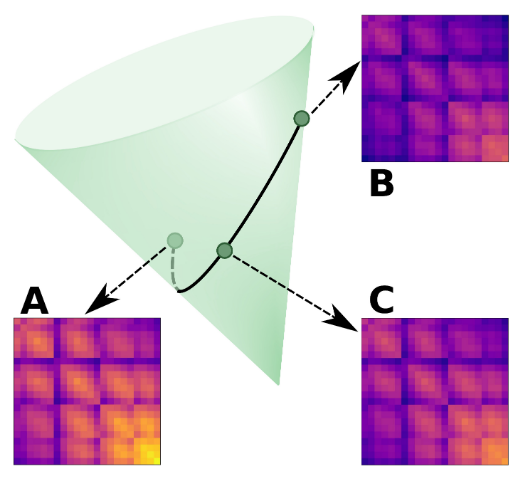 CovMix: Covariance Mixing Regularization for Motor Imagery Decoding 10th International Winter Conference on Brain-Computer Interface (BCI), 2022
CovMix: Covariance Mixing Regularization for Motor Imagery Decoding 10th International Winter Conference on Brain-Computer Interface (BCI), 2022
Paper
In this paper we study the problem of motor imagery decoding using EEG signals. Several previous works use EEG covariances either directly as inputs to Riemannian classifiers, or to perform alignment with respect to reference states. We utilize covariances as a means to concurrently align EEG signals and regularize a Convolutional Neural Network (CNN) that is trained on motor imagery classification. Specifically, we randomly mix session-level and trial-level covariance matrices, traversing their geodesic on the Riemannian manifold, and perform EEG signal alignment using the mixed matrix. This is done during the training phase, effectively acting as regularization on the CNN model, as the signals are augmented using various transformation matrices to align them. We evaluate our method on the dataset of BCI Competition IV-2a, showing its superiority over traditional alignment.
-
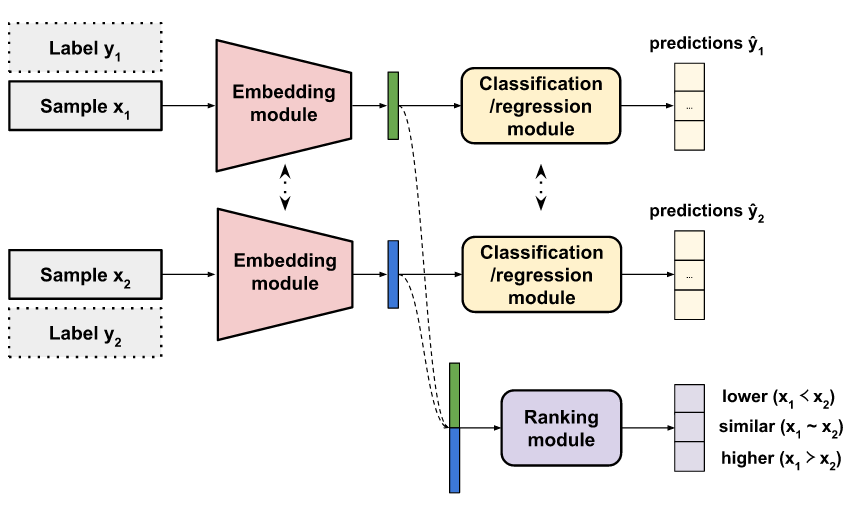 Pairwise Ranking Network for Affect Recognition 9th International Conference on Affective Computing and Intelligent Interaction (ACII), 2021
Pairwise Ranking Network for Affect Recognition 9th International Conference on Affective Computing and Intelligent Interaction (ACII), 2021
Paper
In this work we study the problem of emotion recognition, considering the subjectivity and ordinality of human emotions. We use a deep network architecture that performs joint training on the tasks of classification/regression of samples and ordinal ranking between pairs of samples with respect to their emotion labels. By treating input samples in a pairwise manner, we leverage the auxiliary task of inferring the ordinal relation between their corresponding affective states. This allows capturing the inherently ordinal structure of emotions, resulting in better generalization. Our method is incorporated into existing affect recognition architectures and evaluated on datasets of electroencephalograms (EEG) and images, leading to consistent performance gains.
-
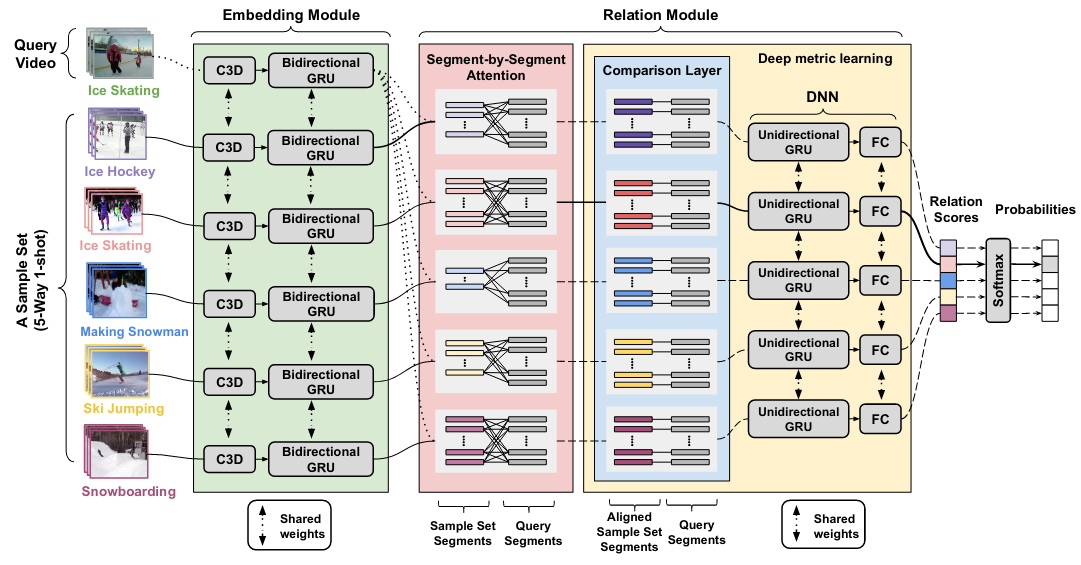 TARN: Temporal Attentive Relation Network for Few-Shot and Zero-Shot Action Recognition British Machine Vision Conference (BMVC), 2019
TARN: Temporal Attentive Relation Network for Few-Shot and Zero-Shot Action Recognition British Machine Vision Conference (BMVC), 2019
Paper
We propose a novel Temporal Attentive Relation Network (TARN) for the problems of few-shot and zero-shot video action recognition. Our network is able to compare representations of variable temporal length. By contrast to other works in few-shot and zero-shot action recognition, we a) utilise attention mechanisms so as to perform temporal alignment, and b) learn a deep-distance measure on the aligned representations at video segment level. Experimental results show that the proposed architecture outperforms the state of the art in few-shot action recognition, and achieves competitive results in zero-shot action recognition.
-
Non-Linear Convolution Filters for CNN-Based Learning IEEE International Conference on Computer Vision (ICCV), 2017
Paper
Typical convolutional layers are linear systems, hence their expressiveness is limited. To overcome this, various non-linearities have been used as activation functions inside CNNs, while also many pooling strategies have been applied. We develop a quadratic convolution method through the Volterra kernels that constitute a more rich function space. Our proposed second-order convolution is tested on the datasets of CIFAR-10 and CIFAR-100. We show that a network which combines linear and non-linear filters in its convolutional layers, can outperform networks that use standard linear filters.
2024
2022
2021
2019
2017
Projects
Work Experience
Apr. 2025 - Present |
Senior Machine Learning Engineer at ORB Innovations |
Feb. 2023 - Mar. 2025 |
Machine Learning Engineer at Cogitat |
Jan. 2016 - Aug. 2018 |
Research Assistant at the Visual Computing Lab of CERTH (Greece). Participated in three EU projects (FORENSOR, MATHISIS, FANDANGO) |
2018, 2019 |
Teaching assistant on MSc programme modules at Queen Mary University of London (ECS708: Machine Learning) |
2019 |
Teaching assistant on MSc programme modules at Queen Mary University of London (ECS797: Machine Learning for Visual Data Analysis) |
